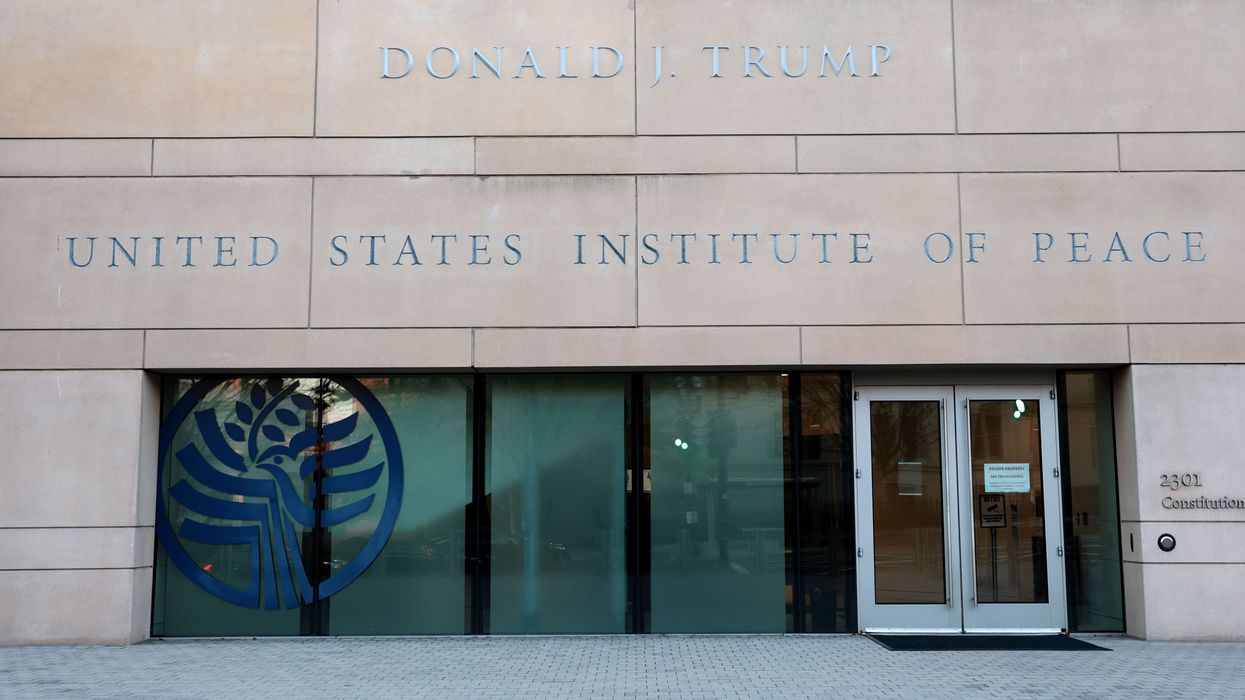June, 09 2009, 10:09am EDT
For Immediate Release
Contact:
Dylan Blaylock,202.408.0034 ext. 137,dylanb@whistleblower.org
Report Details Racial Discrimination at World Bank
WASHINGTON
Today, the Government Accountability Project (GAP) released a report
that investigates and finds evidence of racial discrimination against
black professional grade employees at the World Bank. The report, which
documents the treatment of these employees in recruitment, retention
and internal judicial decisions, finds that a race ceiling exists at
the institution, and that the Bank's legal system fails to address
racial discrimination adequately.
Specifically, the report
details that of over 3,500 professional grade World Bank staff
worldwide (more than 1,000 of whom are Americans), there are only four
black Americans. In addition, the report details how other black bank
staff, such as black Caribbean nationals and black African employees,
are also underrepresented.
The report, which was prepared in
response to multiple disclosures concerning racial discrimination at
the World Bank, is available on GAP's Web site here: https://whistleblower.org/doc/2009/RDWB.pdf. The annexes can also be viewed here: https://whistleblower.org/doc/2009/RDWBA.pdf.
"As
Africa's leading financier, the World Bank should be at the forefront
of promoting racial equality," said Shelley Walden, GAP International
Program Officer and co-author of the report. "Instead, their
anti-discrimination policies are largely cosmetic and lack effective,
impartial enforcement mechanisms. They allow black employees to be sent
to the back of the World Bank bus."
The problem is particularly
acute for black American employees. GAP found that the number of black
Americans employed in the professional grades at Bank headquarters has
decreased in both absolute and relative numbers in the last 30 years.
While the World Bank is an intergovernmental institution that cannot
focus on the specific concerns of national governments in its personnel
policies, the fact remains that an unusually large percentage of its
professional staff members are U.S. nationals, yet black American
professionals are visibly under-represented. Although the World Bank's
international status exempts it from US Affirmative Action and Equal
Opportunity statutes, such an under-representation strongly indicates
discrimination in recruitment and retention policies, a violation of a
core labor standard of the International Labour Organization of the
United Nations. Moreover, because the Bank does not regularly collect
data on racial identity, to a large extent such patterns of
discrimination in employment are invisible.
GAP's report also
documents the failure of the World Bank's conflict resolution system to
address racial discrimination issues adequately. Because the Bank is
not subject to national laws, discriminatory conduct by Bank personnel
can only be challenged internally. The standard applied by the
institution's internal court (World Bank Administrative Tribunal),
however, imposes an onerous burden of proof standard on a complainant
that favors the institution and is inconsistent with international
discrimination jurisprudence. In the past 12 years the Tribunal has
reviewed 21 cases of racial discrimination, but failed to substantiate
a single case. That record stands despite internal Bank studies that
have repeatedly found racial discrimination to be prevalent within the
institution.
When asked about the pattern of racial
discrimination in recruitment at the Bank, the Office of Diversity
Programs responded that qualified black American applicants were in
short supply. "This response seems disingenuous," said Bea Edwards,
GAP's International Program Director. "Washington, D.C., the city that
hosts the World Bank, is home to Howard University, the flagship of the
Historically Black Colleges and Universities in the United States."
Other significant findings from GAP's report include:
*
Bank studies uniformly show that Sub-Saharan African, Caribbean and
black American staff members are disadvantaged, relative to other
staff, when they pursue careers at the Bank. For example, as of 2003,
the latest year for which statistics were available, black World Bank
employees were 36.3% less likely to hold a managerial grade relative to
equally qualified non-black employees.
- Bank data show that
professional black staff members working on Bank operations are
disproportionately confined to positions in the Africa Region.- In 1999 a U.S Government Accountability Office (GAO) study found that
the Bank's internal grievance process was ineffective at addressing
bias complaints and made a series of recommendations for improving the
system's ability to address discrimination. Ten years later, it appears
that the most important recommendation of the GAO and the Bank's own
Review Committee regarding discrimination has not been adopted.- The rules of the Administrative Tribunal do not permit the World Bank
Staff Association to file complaints contesting policies that appear to
have a racially discriminatory impact.- Staff members and job
applicants of African heritage who allege racial discrimination appear
to be unlikely to receive the compensation or vindication they seek
before the Tribunal. In contrast, complainants of non-African descent
who allege racial discrimination, retaliators or Applicants claiming
reverse discrimination have a better chance of receiving a favorable
judgment and compensation.
To address these
issues, GAP's study recommends that the Bank record and publish its
figures on the recruitment, retention and promotion in professional
grades of all black World Bank employees, especially black Americans.
GAP also recommends that an independent review of the Administrative
Tribunal's jurisprudence regarding racial discrimination cases be
conducted, and that the Tribunal's rules be amended to allow a shifting
burden of proof. In addition, the Tribunal should allow petitions from
the Staff Association challenging discriminatory policies or a hostile
work environment. Finally, an intensive recruiting effort at Howard
University's graduate schools, and other Historically Black Colleges
and Universities, would help to address the issue practically and
immediately.
The Government Accountability Project (GAP) is a 30-year-old nonprofit public interest group that promotes government and corporate accountability by advancing occupational free speech, defending whistleblowers, and empowering citizen activists. We pursue this mission through our Nuclear Safety, International Reform, Corporate Accountability, Food & Drug Safety, and Federal Employee/National Security programs. GAP is the nation's leading whistleblower protection organization.
LATEST NEWS
Genocide Backer and Narcissist Donald J. Trump Puts His Name on 'US Institute of Peace'
"This is pathetic, like a little boy running around putting 'Property of Donald' stickers on everything in the house," said one critic.
Dec 04, 2025
The signs on the building of the United States Institute of Peace were changed overnight to include "Donald J. Trump," adding the name of the sitting US president who, among other examples of warmongering and war-making, has openly supported the Israeli genocide in Gaza, bombed Iran, sent an aircraft carrier strike group to threaten Venezuela, and ordered the extrajudicial killings of over 80 people aboard boats in the Caribbean and Pacific in recent months.
The building’s name change preceded a meeting on Thursday between leaders of Rwanda and the Democratic Republic of Congo, where a proposed peace deal between the two warring nations is set to be signed. It also came amid an ongoing clamoring by the president to be recognized as a great maker of peace despite his record of violence, thuggery, racism, and human rights violations.
Critics of the move were swift in their condemnation of Trump, known more for being possibly the most famous narcissist in the history of humanity than for waging anything that remotely looks like a just and lasting peace.
"This is pathetic, like a little boy running around putting 'Property of Donald' stickers on everything in the house," said Tom Nichols, a staff writer at The Atlantic magazine. "It's not the Trump institute of peace, it's the US Institute of Peace."
Trump, who has repeatedly expressed his desire to be awarded the Nobel Peace Prize, has a long history of supporting and conducting overseas military operations and backing the worst actors on the world stage when it comes to war crimes and human rights abuses, counting as his close allies Israeli Prime Minister Benjamin Netanyahu, wanted by the International Criminal Court on war crimes charges, and Saudi Crown Prince Mohammed bin Salman, implicated by Trump's own CIA as the person who ordered the murder and dismembering of journalist Jamal Khashoggi in 2018.
As foreign policy analyst John Feffer recently wrote in a column that appeared in Common Dreams, Trump "deserves" not a prize for peace, but "the opposite: a Nobel prize for war." According to Feffer:
Trump often tries to change the fabric of reality by asserting the truth of absolute falsehoods—that former President Barack Obama was born in Africa, that the 2020 elections were stolen, that he’s the smartest person in every room.
So, too, with the Nobel Peace Prize. Trump boasts that he has ended “seven or eight” wars. It’s a questionable claim given that he was barely involved in negotiating ceasefires in several of those conflicts (Kashmir, Thailand vs. Cambodia) while some of the “successes,” like Gaza, remain largely unresolved. In the case of Egypt and Ethiopia, there wasn’t even a war to end.
Adding further irony to the new facade, Trump is the target of an active lawsuit brought by USIP staffers who were ousted from their posts following a raid on their offices by members of Trump's so-called Department of Government Efficiency, or DOGE, formerly led by mega-billionaire libertarian Elon Musk.
In a statement on the building's new signage, George Foote, the lawyer representing the former USIP leadership and staff, said, "Renaming the USIP building adds insult to injury" for those impacted by Trump's assault on the agency.
"A federal judge has already ruled that the government’s armed takeover was illegal," added Foote. "That judgment is stayed while the government appeals, which is the only reason the government continues to control the building. The rightful owners will ultimately prevail and will restore the US Institute of Peace and the building to their statutory purposes."
Keep ReadingShow Less
'A Human Rights Disaster': Report Details Torture and Chaos at 'Alligator Alcatraz'
Conditions at Florida detention facilities "represent a deliberate system of cruelty designed to punish people seeking to build a new life in the US,” said an official at Amnesty International.
Dec 04, 2025
Two immigration detention centers in Florida have gained notoriety for inhumane conditions since Republican Gov. Ron DeSantis, in close alignment with President Donald Trump's anti-immigrant agenda, has rapidly scaled up mass detention in the state, and a report released Thursday detailed how human rights violations at the two facilities amount to torture in some cases.
Amnesty International published the report, Torture and Enforced Disappearances in the Sunshine State, with a focus on Krome North Service Processing Center and the Everglades Detention Facility, also known by its nickname, "Alligator Alcatraz."
As Common Dreams has reported, many of the people detained at the facilities have been arbitrarily rounded up by immigration agents, with a majority of the roughly 1,000 people being held at Alligator Alcatraz having been convicted of no criminal offense as of July.
Amnesty's report described unsanitary conditions, with fecal matter overflowing from toilets in detainees' sleeping areas, authorities granting only limited access to showers, and poor quality food and water.
Some of the treatment amounts to torture, the report says, including Alligator Alcatraz's use of "the box"—a 2x2 foot "cage-like structure people are put in as punishment—which inmates have been placed in for hours at a time with their hands and feet attached to restraints on the ground.
“These despicable and nauseating conditions at Alligator Alcatraz reflect a pattern of deliberate neglect designed to dehumanize and punish those detained there,” said Amy Fischer, director of refugee and migrant rights with Amnesty International USA. “This is unreal—where’s the oversight?”
At Krome, detainees have been arbitrarily placed in prolonged solitary confinement—defined as lasting longer than 15 days—which is prohibited under international law.
"The use of prolonged solitary confinement at Krome and the use of the ‘box’ at 'Alligator Alcatraz' amount to torture or other ill-treatment," said Amnesty.
The report elevates concerns raised in September by immigrant rights advocates regarding the lack of federal oversight at Alligator Alcatraz, with nearly 1,000 men detained at the prison having been "administratively disappeared"—their names absent from US Immigration and Customs Enforcement's detainee locator system.
"The absence of registration or tracking mechanisms for those detained at Alligator Alcatraz facilitates incommunicado detention and constitutes enforced disappearances when the whereabouts of a person being detained there is denied to their family, and they are not allowed to contact their lawyer," said Amnesty.
The state of Florida has not publicly confirmed the number of people detained at Alligator Alcatraz.
One man told Amnesty, "My lawyers tried to visit me, but they weren’t let in. They were told that they had to fill out a form, which they did, but nothing happened. I was never able to speak with them confidentially.”
At Krome, detainees described overcrowding, medical neglect, and abuse by guards when Amnesty researchers visited in September. ICE has constructed tents and other semi-permanent structures to hold more people than the facility is designed to detain.
The Amnesty researchers were given a tour of relatively extensive medical facilities at Krome, including a dialysis clinic, dental clinic, and a "state-of-the-art" mental health facility—but despite these resources, detainees described officials' failure to provide medical treatment and delays in health assessments. Four people—Ramesh Amechand, Genry Ruiz Guillen, Maksym Chernyak, and Isidro Pérez—have died this year while detained at Krome.
"It’s a disaster if you want to see the doctor," one man told Amnesty. "I once asked to see the doctor, and it took two weeks for me to finally see him. It’s very slow.”
Researchers with the organization witnessed "a guard violently slam a metal flap of a door to a solitary confinement room against a man’s injured hand," and people reported being "hit and punched" by officials at Krome.
In line with the Trump administration, DeSantis and Republican state lawmakers have sought to make Florida "a testing ground for abusive immigration enforcement policies," said Amnesty, with the state deputizing local law enforcement to make immigration arrests and issuing 34 no-bid contracts totaling more than $360 million for the operation of Alligator Alcatraz—while slashing spending on healthcare, food assistance, and disaster relief. Florida has increased the number of people in immigration detention by more than 50% since Trump took office in January.
The organization called on Florida to redirect detention funding toward healthcare, housing, and other public spending, and to ban "shackling, solitary confinement, and punitive outdoor confinement" in line with international standards.
"At the federal level, the US government must end its cruel mass immigration detention machine, stop the criminalization of migration, and bar the use of state-owned facilities for federal immigration custody," said Amnesty.
Fischer emphasized that the chaotic and abusive conditions Amnesty observed at Alligator Alcatraz and Krome "are not isolated."
"They represent a deliberate system of cruelty designed to punish people seeking to build a new life in the US,” said Fischer. “We must stop detaining our immigrant community members and people seeking safety and instead work toward humane, rights-respecting migration policies.”
Keep ReadingShow Less
'Pro-White Collar Crime': Trump Pardons Former Executive Indicted by His Own DOJ
"This president serves the ultra-wealthy—not working people," said one watchdog group.
Dec 04, 2025
US President Donald Trump on Wednesday granted a full, unconditional pardon to former entertainment venue executive Tim Leiweke, who was indicted just months ago by Trump's own Justice Department for "orchestrating a conspiracy to rig the bidding process for an arena at a public university."
Leiweke, who expressed "profound gratitude" for the pardon, stepped down as CEO of Oak View Group in July, on the same day that the Justice Department’s Antitrust Division announced the indictment.
The longtime sports executive was accused of conspiring with the CEO of a competitor to rig bidding for the development of the $375 million, 15,000-seat Moody Center at the University of Texas at Austin. Assistant Attorney General Abigail Slater said the scheme "deprived a public university and taxpayers of the benefits of competitive bidding."
Leiweke pleaded not guilty to the charge, which carried a maximum prison sentence of 10 years.
Bloomberg observed that the pardon comes "just before Leiweke is scheduled to be deposed by lawyers for the Justice Department and Live Nation Entertainment Inc. on Thursday in the DOJ’s separate civil antitrust case against the company and its subsidiary Ticketmaster."
"Leiweke earlier unsuccessfully tried to avoid the deposition, citing liability from then pending criminal charges, according to court records," Bloomberg added.
Federal investigators have accused Oak View Group, Leiweke's former company, of quietly receiving kickbacks for promoting Ticketmaster services at Oak View Group venues.
The pardon was announced on the same day that Trump granted clemency to US Rep. Henry Cuellar (D-Texas), who faced bribery and money laundering charges. Days earlier, the president commuted the prison sentence of a former private equity executive convicted of defrauding more than 10,000 investors.
"Private equity CEO David Gentile was sentenced to seven years for defrauding investors of 1.6 BILLION," the watchdog group Public Citizen wrote Wednesday. "But Trump commuted his sentence. This isn't the first time Trump has helped the corporate class evade accountability. This president serves the ultra-wealthy—not working people."
Antitrust advocate Matt Stoller accused Trump of advancing a "straightforward pro-white collar crime agenda" by using his pardon power to rescue fraudsters from prison time.
"Trump's pro-white collar crime agenda seems pretty open at this point," Stoller wrote in response to the Cuellar pardon.
As the New York Times reported earlier this year, Trump has employed "the vast power of his office to redefine criminality to suit his needs—using pardons to inoculate criminals he happens to like, downplaying corruption and fraud as crimes, and seeking to stigmatize political opponents by labeling them criminals."
"An offshoot of this strategy is relegating white-collar offenses to a rank of secondary importance behind violent and property crimes," the Times noted. "He has even tried to create a new red-alert category—what he calls 'immigrant crime,' even though studies have shown that immigrants are not more likely to commit violent offenses than people born in the country."
Keep ReadingShow Less
Most Popular


